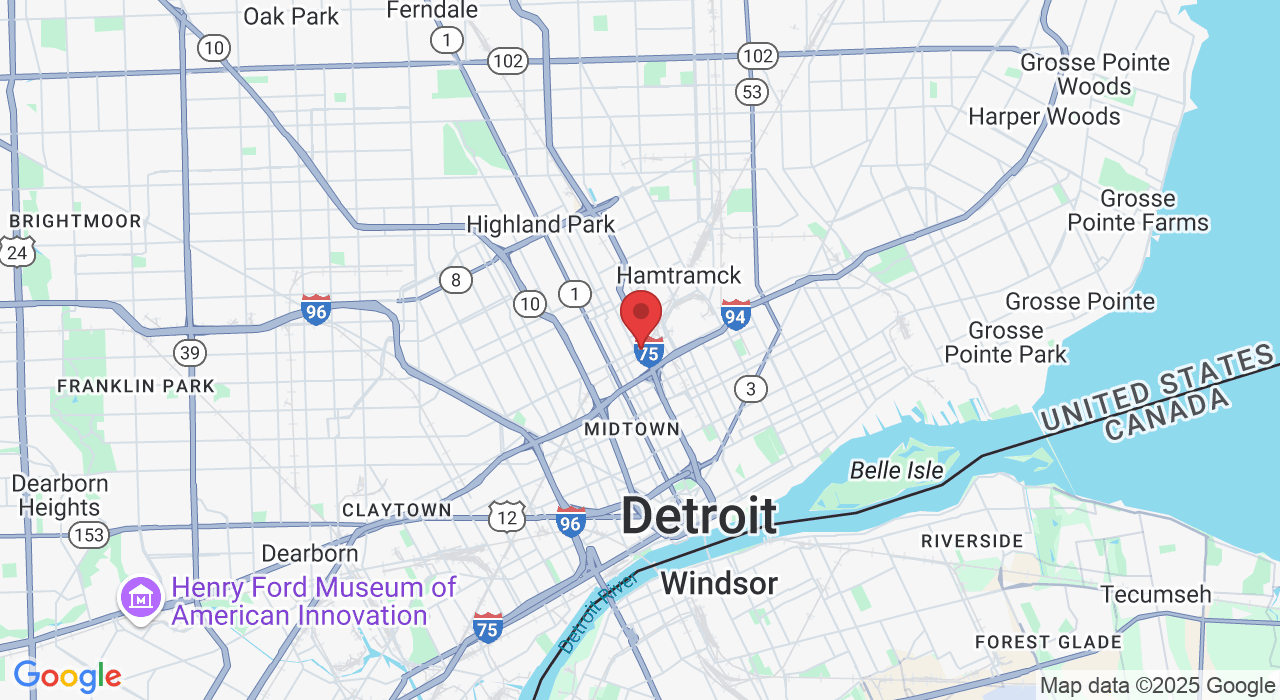
We have the tools and resources to help you start or
scale your business. Join our thriving community and
stay connected with us.

We have the tools and resources to
help you start or scale your business.
Join our thriving community and stay
connectedwith us.


Being an entrepreneur is hard, and having the proper resources can be frustrating. You do not have to go at it alone. We have courses and a community to help educate you (Real Life XP), a full CRM system to help you automate your processes (The Real Life Business Builder), and coaching to help you implement what you've learned.


Being an entrepreneur is hard, and having
the proper resources can be frustrating.
You do not have to go at it alone. We have courses and a community to help educate
you (Real Life XP), a full CRM system to help
you automate your processes (The Real
Life Business Builder), and coaching to help
you implement what you've learned.

We understand that minority entrepreneurs have different needs and we cater to those.
Real Life XP
Our flagship entrepreneur accelration course
covers the entreprenur mindset, developing
systems and processes for your business,
building credit and acquiring funding for your
business and much more.


Coaching and Consulting
The right guidance can help entrepreneurs
overcome obstacles or avoid them all together.
We offer one-on-one and group coaching
to guide entrepreneurs through the maze of
business building.
The Real Life Business Builder Community
Our free community for entrepreneurs offers
courses, eBooks, group coaching,
and other resources for the growth and
development of entrepreneurs.


The Real Life Business Builder
The Real Life Business Builder is a full CRM, marketing, and automation system that we help set up for our clients to ensure implementation. Our lowest plan is just $80 a month and includes a free website and basic automation set up.
Tax Preparation, Training,
and Software
Small businesses need tax preparers who
understand small businesses. We now offer tax preparation services, tax preparation training,
and tax software to ensure entrepreneurs are able to plan for taxes and receive maximum returns.


Business Credit and
Business Funding
Without capital, your business will not be able to grow. We help clients start from nothing and build business credit in less than 90 days. We also ensure that you fit the criteria to apply for different business funding options.
The Ultimate Business
Builder Blueprint
Let us help you create an irresistible offer,
a professional funnel to generate leads,
marketing and ads to increase your reach,
CRM software to manage leads, and coaching
to put it all together.


We understand that minority
entrepreneurs have different needs
and we cater to those.

Real Life XP
Our flagship entrepreneur accelration course covers the entreprenur mindset, developing systems and processes
for your business, building credit and acquiring funding for your business and much more.

Coaching and Consulting
The right guidance can help entrepreneurs
overcome obstacles or avoid them all together. We offer one-on-one and group coaching to guide entrepreneurs through the maze of business building.

The Real Life Business
Builder Community
Our free community for entrepreneurs offers courses, eBooks, group coaching,
and other resources for the growth and
development of entrepreneurs.

The Real Life Business Builder
The Real Life Business Builder is a full CRM, marketing, and automation system that we help set up for our clients to ensure implementation. Our lowest plan is just $80 a month and includes a free website and basic automation set up.

Tax Preparation, Training,
and Software
Small businesses need tax preparers who
understand small businesses. We now offer tax preparation services, tax preparation training,
and tax software to ensure entrepreneurs are able to plan for taxes and receive maximum returns.

Business Credit and
Business Funding
Without capital, your business will not be able to grow. We help clients start from nothing and build business credit in less than 90 days. We also ensure that you fit the criteria to apply for different business funding options.

The Ultimate Business
Builder Blueprint
Let us help you create an irresistible offer,
a professional funnel to generate leads,
marketing and ads to increase your reach,
CRM software to manage leads, and coaching
to put it all together.



The Power of Building a Pipeline Instead of Chasing Clients
The Power of Building a Pipeline Instead of Chasing Clients
In the world of business development, there's a fundamental difference between organizations that consistently grow and those that struggle with feast-or-famine cycles. The difference often comes down to a simple but powerful shift in approach: building a systematic client pipeline instead of constantly chasing after new clients.
This shift isn't just about changing tactics it's about transforming your entire business development philosophy from reactive to proactive. When done correctly, this transformation can lead to more predictable revenue, healthier client relationships, and sustainable growth without the constant stress of wondering where your next client will come from.
The Problem with Client-Chasing
Most businesses start with the client-chasing model. This approach is characterized by:
Reactive business development: Only looking for new clients when your current workload dips
Inconsistent marketing efforts: Marketing in bursts rather than consistently
Desperation-driven pitching: Taking on less-than-ideal clients because you need the work
Feast-or-famine cycles: Alternating between being overwhelmed with work and desperately seeking it
The client-chasing model creates a vicious cycle. When you're busy with clients, you stop all marketing and business development activities. Then, when those projects end, you suddenly have no prospects in the pipeline, leading to panic and a frantic search for new business.
This cycle not only creates enormous stress but also weakens your negotiating position. As Yoon Cannon, a business growth expert, points out, "If 80 percent of your company's annual revenue is riding on 20 percent of your total customer base, then you risk a devastating hit to profitability from losing just one or two of your biggest clients" Inc.com.
The Pipeline Approach: A Better Way
Building a client pipeline offers a fundamentally different approach. Instead of chasing clients, you create a system that consistently attracts, nurtures, and converts prospects into clients.
A well-designed pipeline has several distinct stages that prospects move through:
Awareness: Potential clients become aware of your business
Interest: They show interest in your offerings
Consideration: They actively consider your solutions
Decision: They decide whether to work with you
Action: They become a client
What makes this approach powerful is that it focuses on creating a steady flow of prospects at each stage of the pipeline, rather than scrambling to find clients when you need them.
Why the Pipeline Approach Works Better
1. Consistency Creates Predictability
With a pipeline approach, business development becomes an ongoing process rather than a periodic emergency. As HubSpot's sales blog notes, "In an ideal sales pipeline, you should always have more opportunities in the prospecting part than in the closing part" because "the number of prospects in each stage progressively decreases while the probability of closing progressively increases" HubSpot.
This ongoing nurturing of prospects at different stages creates a more predictable flow of new business, allowing you to forecast revenue more accurately and plan for growth with greater confidence.
2. Better Quality Clients
When you're not desperate for work, you can be more selective about the clients you take on. This selectivity leads to better client relationships, higher-value projects, and work that aligns more closely with your strengths and interests.
As noted by experts at Pipeline CRM, businesses that implement proper pipeline management often see significant improvements in client quality and relationship longevity PipelineCRM.
3. Stronger Negotiating Position
Desperation is detectable, and it weakens your position in client negotiations. When you have a healthy pipeline, you negotiate from a position of strength. You can confidently set appropriate rates, establish healthy boundaries, and walk away from poor-fit opportunities because you know more prospects are coming.
4. Reduced Stress and Improved Planning
Perhaps the greatest benefit of the pipeline approach is the reduction in stress that comes from knowing where your next clients will come from. This certainty allows for better resource planning, more strategic hiring, and a focus on long-term growth rather than short-term survival.
Function Point, an agency management system, emphasizes that implementing a digital solution for pipeline management helps "control all your business operations, workflows, and financials" while giving you "full visibility into the sales processes" Function Point.
Real-World Success Stories
The power of the pipeline approach is demonstrated by businesses that have transformed their growth by implementing it:
SiteForce: Doubled Revenue Through Pipeline Management
Dallas-based commercial janitorial company SiteForce used Pipedrive's pipeline management system to double its revenue and triple the size of its field team Pipedrive. By systematically tracking prospects through their pipeline, they were able to focus their efforts on the most promising opportunities and increase their closing rate.
GlobalTranz: 63% Boost in Partnerships
When GlobalTranz, a top 3PL solutions provider, implemented a structured pipeline approach, its agent recruiting team achieved a 63% boost in partnerships with revenue-generating agents PipelineCRM. This dramatic improvement came from having a clear view of their recruitment pipeline and being able to nurture relationships more effectively at each stage.
B2B Marketing Campaign: 15% Pipeline Growth
A B2B marketing case study showed a 15% increase in the sales pipeline from content-driven campaigns. This success came from combining "personalized, relevant content with strong data insights," enabling the company to "engage their target audience effectively and convert leads into loyal customers" B2B Marketing World.
Building Your Pipeline System
Creating an effective client pipeline isn't a one-time task it's an ongoing system that requires attention and refinement. Here's how to get started:
1. Define Your Ideal Client Profile
Before you can build an effective pipeline, you need to know exactly who you're trying to attract. Create a detailed profile of your ideal client, including:
Industry and company size
Budget range and typical project scope
Decision-making process and buying triggers
Pain points and challenges
Values and business philosophy
This profile serves as a filter for your pipeline, helping you focus your efforts on prospects who are a good fit for your business.
2. Map Your Client Journey
Understanding how clients move from first awareness to becoming a loyal customer is crucial for building an effective pipeline. Document each stage of this journey, including:
How prospects typically become aware of your business
What information they need at each stage
Common objections and questions that arise
Decision-making factors and timeframes
Post-purchase experiences and upsell opportunities
As Pipedrive suggests, your pipeline should "reflect your buyer's journey, helping you track progress and accurately forecast revenue" HubSpot.
3. Create Attraction Systems
With your ideal client profile and journey map in hand, you can create systems to attract prospects into the top of your pipeline. These might include:
Content marketing: Creating valuable content that addresses your ideal clients' pain points
SEO: Optimizing your online presence to be found by prospects actively searching for solutions
Networking: Building relationships in communities where your ideal clients gather
Referral programs: Encouraging existing clients to refer similar businesses
Partnerships: Collaborating with complementary service providers who serve the same client base
The key is to create multiple, consistent sources of new prospects rather than relying on a single channel.
4. Develop Nurturing Processes
Not all prospects are ready to buy immediately. In fact, most aren't. That's why you need systems to nurture relationships with prospects until they're ready to become clients. These might include:
Email sequences: Automated emails that provide value and build trust over time
Content offers: Downloadable resources that address specific needs and challenges
Webinars and events: Educational opportunities that showcase your expertise
Personal touchpoints: Check-ins and relationship-building communications
According to ActualTechMedia, "Marketers should constantly have strategies running for every stage of the pipeline. While the marketing team is nurturing a group of leads, marketers are already looking at the next sales-generation campaign, so there's always a steady stream of leads coming through the pipeline" ActualTechMedia.
5. Implement a Pipeline Management System
To effectively manage your pipeline, you need a system to track prospects as they move through each stage. This could be as simple as a spreadsheet for a small business, but most organizations benefit from a dedicated CRM (Customer Relationship Management) system.
Key features to look for include:
Visual pipeline representation: Seeing your entire pipeline at a glance
Contact and communication tracking: Keeping a record of all interactions
Task management: Ensuring follow-ups happen when needed
Reporting and analytics: Understanding what's working and what needs improvement
The Mo Agency recommends: "Modern CRMs display the sales pipeline in a visual representation for you and your sales team... [allowing you to] see how many opportunities are pending, closing probabilities, forecast revenue, and how many of those deals might close in a given timeframe" The Mo Agency.
6. Measure, Analyze, and Refine
Once your pipeline is up and running, the key to improvement is ongoing measurement and refinement. Track metrics such as:
Conversion rates: The percentage of prospects that move from one stage to the next
Velocity: How quickly prospects move through your pipeline
Leakage points: Stages where prospects commonly drop out
Source effectiveness: Which attraction channels produce the best clients
ROI: The return on investment for different pipeline activities
As Function Point notes, "Building an agency client pipeline requires constant improvement with trials and tests. You should evaluate your progress, review your conversion rates, and track how often you can close a new contract with your target clients" Function Point.
Common Challenges and How to Overcome Them
Implementing a pipeline approach isn't without challenges. Here are some common obstacles and how to address them:
Challenge 1: Inconsistent Lead Flow
Many businesses struggle with inconsistent lead generation, which can make it difficult to maintain a steady pipeline.
Solution: Diversify your lead sources. Don't rely on a single channel for generating leads. Instead, create multiple attraction mechanisms that operate simultaneously. This might include content marketing, SEO, paid advertising, networking, partnerships, and referral programs.
Challenge 2: Time Management
Building and maintaining a pipeline requires consistent effort, which can be challenging when you're also delivering client work.
Solution: Block dedicated time for pipeline activities. Treat pipeline management as a non-negotiable part of your schedule, just like client work. Even 30-60 minutes per day can make a significant difference if applied consistently.
Challenge 3: Long Sales Cycles
In some industries, especially B2B, sales cycles can be lengthy, making it difficult to see immediate results from pipeline activities.
Solution: Focus on relationship-building rather than immediate sales. Create a value ladder that allows prospects to engage with your business at different levels, from low-commitment offerings (like content resources) to higher-investment services.
Challenge 4: Pipeline Leakage
Many pipelines suffer from "leakage" prospects dropping out at various stages without converting.
Solution: Identify and address bottlenecks in your pipeline. Track where prospects commonly drop off and implement targeted strategies to improve conversion at those stages. This might involve creating additional content, providing more social proof, or adjusting your follow-up processes.
Making the Shift: From Chasing to Attracting
Transitioning from a client-chasing model to a pipeline approach doesn't happen overnight. It requires a mindset shift as well as new systems and processes. Here's how to make the transition successfully:
1. Start Small
You don't need to build a complex pipeline system all at once. Begin with a simple approach that you can consistently maintain, then expand and refine over time.
2. Leverage Existing Resources
Look for opportunities to repurpose existing content and relationships to fuel your pipeline. Past clients, network connections, and content you've already created can all be valuable pipeline assets.
3. Build Automation Where Possible
Use technology to automate repetitive aspects of your pipeline, such as initial follow-ups, email sequences, and task reminders. This allows you to maintain consistency without overwhelming your schedule.
4. Create Accountability
Whether through team structures, mastermind groups, or outside coaching, create accountability mechanisms to ensure you maintain your pipeline activities even when client work gets busy.
5. Focus on Progress, Not Perfection
Building an effective pipeline is an iterative process. Focus on making consistent progress rather than creating a perfect system from the start.
Conclusion: The Long-Term Advantage
The shift from chasing clients to building a pipeline represents more than just a change in tactics it's a fundamental transformation in how you approach business development. While the client-chasing model might yield short-term results, the pipeline approach creates lasting advantages that compound over time.
By investing in a systematic pipeline, you create an asset that:
Generates consistent opportunities even when you're focused elsewhere
Improves in effectiveness over time as you refine your approach
Gives you greater control over who you work with and on what terms
Reduces stress and creates a more sustainable business model
Positions you for strategic growth rather than reactive survival
As Grant Cardone, author of "Sell or Be Sold," emphasized, a pipeline structure is "essential to the long-term viability and growth of your organization. It is impossible to be too aggressive in this area" Inc.com.
The ultimate power of the pipeline approach lies in its ability to transform business development from a necessary evil into a strategic advantage one that not only brings in new clients but also enhances the quality of your work, the health of your business, and the satisfaction you derive from your professional endeavors.
About the Author: Coach JP is a business development strategist who helps service-based businesses build effective client pipelines. With over a dozen years of experience working with minority entrepreneurs, Coach JP specializes in creating systematic approaches to client attraction and conversion that create predictable revenue without the stress of constant client-chasing.

The Power of Building a Pipeline Instead of Chasing Clients
The Power of Building a Pipeline Instead of Chasing Clients
In the world of business development, there's a fundamental difference between organizations that consistently grow and those that struggle with feast-or-famine cycles. The difference often comes down to a simple but powerful shift in approach: building a systematic client pipeline instead of constantly chasing after new clients.
This shift isn't just about changing tactics it's about transforming your entire business development philosophy from reactive to proactive. When done correctly, this transformation can lead to more predictable revenue, healthier client relationships, and sustainable growth without the constant stress of wondering where your next client will come from.
The Problem with Client-Chasing
Most businesses start with the client-chasing model. This approach is characterized by:
Reactive business development: Only looking for new clients when your current workload dips
Inconsistent marketing efforts: Marketing in bursts rather than consistently
Desperation-driven pitching: Taking on less-than-ideal clients because you need the work
Feast-or-famine cycles: Alternating between being overwhelmed with work and desperately seeking it
The client-chasing model creates a vicious cycle. When you're busy with clients, you stop all marketing and business development activities. Then, when those projects end, you suddenly have no prospects in the pipeline, leading to panic and a frantic search for new business.
This cycle not only creates enormous stress but also weakens your negotiating position. As Yoon Cannon, a business growth expert, points out, "If 80 percent of your company's annual revenue is riding on 20 percent of your total customer base, then you risk a devastating hit to profitability from losing just one or two of your biggest clients" Inc.com.
The Pipeline Approach: A Better Way
Building a client pipeline offers a fundamentally different approach. Instead of chasing clients, you create a system that consistently attracts, nurtures, and converts prospects into clients.
A well-designed pipeline has several distinct stages that prospects move through:
Awareness: Potential clients become aware of your business
Interest: They show interest in your offerings
Consideration: They actively consider your solutions
Decision: They decide whether to work with you
Action: They become a client
What makes this approach powerful is that it focuses on creating a steady flow of prospects at each stage of the pipeline, rather than scrambling to find clients when you need them.
Why the Pipeline Approach Works Better
1. Consistency Creates Predictability
With a pipeline approach, business development becomes an ongoing process rather than a periodic emergency. As HubSpot's sales blog notes, "In an ideal sales pipeline, you should always have more opportunities in the prospecting part than in the closing part" because "the number of prospects in each stage progressively decreases while the probability of closing progressively increases" HubSpot.
This ongoing nurturing of prospects at different stages creates a more predictable flow of new business, allowing you to forecast revenue more accurately and plan for growth with greater confidence.
2. Better Quality Clients
When you're not desperate for work, you can be more selective about the clients you take on. This selectivity leads to better client relationships, higher-value projects, and work that aligns more closely with your strengths and interests.
As noted by experts at Pipeline CRM, businesses that implement proper pipeline management often see significant improvements in client quality and relationship longevity PipelineCRM.
3. Stronger Negotiating Position
Desperation is detectable, and it weakens your position in client negotiations. When you have a healthy pipeline, you negotiate from a position of strength. You can confidently set appropriate rates, establish healthy boundaries, and walk away from poor-fit opportunities because you know more prospects are coming.
4. Reduced Stress and Improved Planning
Perhaps the greatest benefit of the pipeline approach is the reduction in stress that comes from knowing where your next clients will come from. This certainty allows for better resource planning, more strategic hiring, and a focus on long-term growth rather than short-term survival.
Function Point, an agency management system, emphasizes that implementing a digital solution for pipeline management helps "control all your business operations, workflows, and financials" while giving you "full visibility into the sales processes" Function Point.
Real-World Success Stories
The power of the pipeline approach is demonstrated by businesses that have transformed their growth by implementing it:
SiteForce: Doubled Revenue Through Pipeline Management
Dallas-based commercial janitorial company SiteForce used Pipedrive's pipeline management system to double its revenue and triple the size of its field team Pipedrive. By systematically tracking prospects through their pipeline, they were able to focus their efforts on the most promising opportunities and increase their closing rate.
GlobalTranz: 63% Boost in Partnerships
When GlobalTranz, a top 3PL solutions provider, implemented a structured pipeline approach, its agent recruiting team achieved a 63% boost in partnerships with revenue-generating agents PipelineCRM. This dramatic improvement came from having a clear view of their recruitment pipeline and being able to nurture relationships more effectively at each stage.
B2B Marketing Campaign: 15% Pipeline Growth
A B2B marketing case study showed a 15% increase in the sales pipeline from content-driven campaigns. This success came from combining "personalized, relevant content with strong data insights," enabling the company to "engage their target audience effectively and convert leads into loyal customers" B2B Marketing World.
Building Your Pipeline System
Creating an effective client pipeline isn't a one-time task it's an ongoing system that requires attention and refinement. Here's how to get started:
1. Define Your Ideal Client Profile
Before you can build an effective pipeline, you need to know exactly who you're trying to attract. Create a detailed profile of your ideal client, including:
Industry and company size
Budget range and typical project scope
Decision-making process and buying triggers
Pain points and challenges
Values and business philosophy
This profile serves as a filter for your pipeline, helping you focus your efforts on prospects who are a good fit for your business.
2. Map Your Client Journey
Understanding how clients move from first awareness to becoming a loyal customer is crucial for building an effective pipeline. Document each stage of this journey, including:
How prospects typically become aware of your business
What information they need at each stage
Common objections and questions that arise
Decision-making factors and timeframes
Post-purchase experiences and upsell opportunities
As Pipedrive suggests, your pipeline should "reflect your buyer's journey, helping you track progress and accurately forecast revenue" HubSpot.
3. Create Attraction Systems
With your ideal client profile and journey map in hand, you can create systems to attract prospects into the top of your pipeline. These might include:
Content marketing: Creating valuable content that addresses your ideal clients' pain points
SEO: Optimizing your online presence to be found by prospects actively searching for solutions
Networking: Building relationships in communities where your ideal clients gather
Referral programs: Encouraging existing clients to refer similar businesses
Partnerships: Collaborating with complementary service providers who serve the same client base
The key is to create multiple, consistent sources of new prospects rather than relying on a single channel.
4. Develop Nurturing Processes
Not all prospects are ready to buy immediately. In fact, most aren't. That's why you need systems to nurture relationships with prospects until they're ready to become clients. These might include:
Email sequences: Automated emails that provide value and build trust over time
Content offers: Downloadable resources that address specific needs and challenges
Webinars and events: Educational opportunities that showcase your expertise
Personal touchpoints: Check-ins and relationship-building communications
According to ActualTechMedia, "Marketers should constantly have strategies running for every stage of the pipeline. While the marketing team is nurturing a group of leads, marketers are already looking at the next sales-generation campaign, so there's always a steady stream of leads coming through the pipeline" ActualTechMedia.
5. Implement a Pipeline Management System
To effectively manage your pipeline, you need a system to track prospects as they move through each stage. This could be as simple as a spreadsheet for a small business, but most organizations benefit from a dedicated CRM (Customer Relationship Management) system.
Key features to look for include:
Visual pipeline representation: Seeing your entire pipeline at a glance
Contact and communication tracking: Keeping a record of all interactions
Task management: Ensuring follow-ups happen when needed
Reporting and analytics: Understanding what's working and what needs improvement
The Mo Agency recommends: "Modern CRMs display the sales pipeline in a visual representation for you and your sales team... [allowing you to] see how many opportunities are pending, closing probabilities, forecast revenue, and how many of those deals might close in a given timeframe" The Mo Agency.
6. Measure, Analyze, and Refine
Once your pipeline is up and running, the key to improvement is ongoing measurement and refinement. Track metrics such as:
Conversion rates: The percentage of prospects that move from one stage to the next
Velocity: How quickly prospects move through your pipeline
Leakage points: Stages where prospects commonly drop out
Source effectiveness: Which attraction channels produce the best clients
ROI: The return on investment for different pipeline activities
As Function Point notes, "Building an agency client pipeline requires constant improvement with trials and tests. You should evaluate your progress, review your conversion rates, and track how often you can close a new contract with your target clients" Function Point.
Common Challenges and How to Overcome Them
Implementing a pipeline approach isn't without challenges. Here are some common obstacles and how to address them:
Challenge 1: Inconsistent Lead Flow
Many businesses struggle with inconsistent lead generation, which can make it difficult to maintain a steady pipeline.
Solution: Diversify your lead sources. Don't rely on a single channel for generating leads. Instead, create multiple attraction mechanisms that operate simultaneously. This might include content marketing, SEO, paid advertising, networking, partnerships, and referral programs.
Challenge 2: Time Management
Building and maintaining a pipeline requires consistent effort, which can be challenging when you're also delivering client work.
Solution: Block dedicated time for pipeline activities. Treat pipeline management as a non-negotiable part of your schedule, just like client work. Even 30-60 minutes per day can make a significant difference if applied consistently.
Challenge 3: Long Sales Cycles
In some industries, especially B2B, sales cycles can be lengthy, making it difficult to see immediate results from pipeline activities.
Solution: Focus on relationship-building rather than immediate sales. Create a value ladder that allows prospects to engage with your business at different levels, from low-commitment offerings (like content resources) to higher-investment services.
Challenge 4: Pipeline Leakage
Many pipelines suffer from "leakage" prospects dropping out at various stages without converting.
Solution: Identify and address bottlenecks in your pipeline. Track where prospects commonly drop off and implement targeted strategies to improve conversion at those stages. This might involve creating additional content, providing more social proof, or adjusting your follow-up processes.
Making the Shift: From Chasing to Attracting
Transitioning from a client-chasing model to a pipeline approach doesn't happen overnight. It requires a mindset shift as well as new systems and processes. Here's how to make the transition successfully:
1. Start Small
You don't need to build a complex pipeline system all at once. Begin with a simple approach that you can consistently maintain, then expand and refine over time.
2. Leverage Existing Resources
Look for opportunities to repurpose existing content and relationships to fuel your pipeline. Past clients, network connections, and content you've already created can all be valuable pipeline assets.
3. Build Automation Where Possible
Use technology to automate repetitive aspects of your pipeline, such as initial follow-ups, email sequences, and task reminders. This allows you to maintain consistency without overwhelming your schedule.
4. Create Accountability
Whether through team structures, mastermind groups, or outside coaching, create accountability mechanisms to ensure you maintain your pipeline activities even when client work gets busy.
5. Focus on Progress, Not Perfection
Building an effective pipeline is an iterative process. Focus on making consistent progress rather than creating a perfect system from the start.
Conclusion: The Long-Term Advantage
The shift from chasing clients to building a pipeline represents more than just a change in tactics it's a fundamental transformation in how you approach business development. While the client-chasing model might yield short-term results, the pipeline approach creates lasting advantages that compound over time.
By investing in a systematic pipeline, you create an asset that:
Generates consistent opportunities even when you're focused elsewhere
Improves in effectiveness over time as you refine your approach
Gives you greater control over who you work with and on what terms
Reduces stress and creates a more sustainable business model
Positions you for strategic growth rather than reactive survival
As Grant Cardone, author of "Sell or Be Sold," emphasized, a pipeline structure is "essential to the long-term viability and growth of your organization. It is impossible to be too aggressive in this area" Inc.com.
The ultimate power of the pipeline approach lies in its ability to transform business development from a necessary evil into a strategic advantage one that not only brings in new clients but also enhances the quality of your work, the health of your business, and the satisfaction you derive from your professional endeavors.
About the Author: Coach JP is a business development strategist who helps service-based businesses build effective client pipelines. With over a dozen years of experience working with minority entrepreneurs, Coach JP specializes in creating systematic approaches to client attraction and conversion that create predictable revenue without the stress of constant client-chasing.
What are the benefits of business coaching?
Business coaches help entrepreneurs develop within their personal and business lives, so their businesses can thrive.
This includes identifying strengths and weaknesses, setting personal and professional goals and targets, and holding
the entrepreneur accountable to ensure those goals are reached.
What is Real Life XP?
Real Life XP is our free entrepreneur acceleration course, available in the Real Life Business Builders community. The
three modules in the course focuses first on the entrepreneur mindset, then business systems and processes, and finally building business credit and obtaining business financing.
This course is desgned to help entrepreneurs of all levels.
What is The Real Life Business Builder?
The Real Life Business Builder is an all-in-one CRM and marketing system that we help implement for entrepreneurs to build their contact list and nurture relationships with leads and customers. The system includes a website/funnel builder, email and SMS marketing and the option to brand the software as your own and resale it for profit. With a price as low as $80 per month, you have more than enough room to spend money on ads, which we will also run for you, if need be.
What else do you offer?
Real Life Business Solutions offers a wide range of products
and services, including eBooks, workbooks, courses, and other educational material as well as business plans, marketing plans, and specialized business solutions.
Is group coaching or 1-on-1 coaching available?
Yes, we offer different coaching programs to accommodate clients who enjoy building in a community and those who
are more comfortable in a more personal setting.
Is there some type of guarantee?
Yes. Real Life Business Solutions provides more than enough tools and resources to help entrepreneurs grow into who they need to become to be successful, but doing the work is still up to the client. While we can't guarantee specific results, we can guarantee that we will provide all of the things we promise or you will receive all of your money back.
Do I have to own a business to join the Real Life Business Builder Community?
No. The Real Life Business Builder Community is designed to help entrepreneurs and aspiring entrepreneurs. As long as you are interested in business and business conversations, the community will be of value to you.
Why are there no prices on the website?
Due to the unique nature of every person and every business, consulting prices cannot be quoted until we have our initial strategy session. We offer some programs, with prices, to offer
a starting point, but any personalization will require direct communication before a proposal is drawn up.
What are the benefits of business coaching?
Business coaches help entrepreneurs develop within their personal and business lives, so their businesses can thrive.
This includes identifying strengths and weaknesses, setting personal and professional goals and targets, and holding
the entrepreneur accountable to ensure those goals are reached.
What is Real Life XP?
Real Life XP is our free entrepreneur acceleration course, available in the Real Life Business Builders community. The
three modules in the course focuses first on the entrepreneur mindset, then business systems and processes, and finally building business credit and obtaining business financing.
This course is desgned to help entrepreneurs of all levels.
What is The Real Life Business Builder?
The Real Life Business Builder is an all-in-one CRM and marketing system that we help implement for entrepreneurs to build their contact list and nurture relationships with leads and customers. The system includes a website/funnel builder, email and SMS marketing and the option to brand the software as your own and resale it for profit. With a price as low as $80 per month, you have more than enough room to spend money on ads, which we will also run for you, if need be.
What else do you offer?
Real Life Business Solutions offers a wide range of products and services, including eBooks, workbooks, courses, and other educational material as well as business plans, marketing plans, and specialized business solutions.
Is group coaching or 1-on-1 coaching available?
Yes, we offer different coaching programs to accomodate coaches who enjoy building in a community and those who
are more comfortable in a more personal setting.
Is there some type of guarantee?
Yes. Real Life Business Solutions provides more than enough tools and resources to help entrepreneurs grow into who they need to become to be successful, but doing the work is still up to the client. While we can't guarantee specific results, we can guarantee that we will provide all of the things we promise or you will receive all of your money back.
Do I have to own a business to join the Real Life Business Builder Community?
No. The Real Life Business Builder Community is designed to help entrepreneurs and aspiring entrepreneurs. As long as you are interested in business and business conversations, the community will be of value to you.
Why are there no prices on the website?
Due to the unique nature of every person and
every business, consulting prices cannot be quoted
until we have our initial strategy session. We offer
some programs, with prices, to offer a starting
point, but any personalization will require direct communication before a proposal is drawn up.
Contact Us
(313) 883-9664
Real Life Business Solutions
2785 E Grand Blvd, Suite 381
Detroit, MI 48211
© 2024 Real Life Business Solutions, LLC - All Rights Reserved · Privacy policy
Contact Us
(313) 883-9664
Real Life Business Solutions 2785 E
Grand Blvd, Suite 381Detroit, MI 48211
© 2024 Real Life Business Solutions, LLC -
All Rights Reserved · Privacy policy




